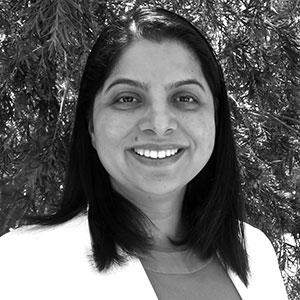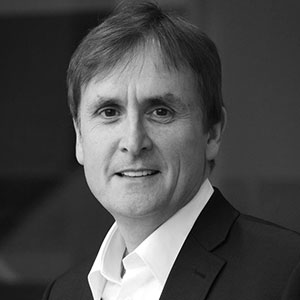Everything seems to be fractured and surreal. The systems and structures many of us take for granted are revealing their fragility.
While humans have always been powerless against devastating and wanton forces of nature, increasingly, questions are being asked about how responsibly we, those of us in privileged democratic nations, are living on our planet.
As activist Greta Thunberg so eloquently admonished in her 2019 address to the United Nations: “We are at the beginning of a mass extinction and all you can talk about is the money and fairytales of eternal economic growth – how dare you?”
And when the principles of growth are short-circuited by something like COVID-19; smashing through supply chains and key businesses such as aviation, education, manufacturing and tourism, what is our fallback position?
They are questions that have University of South Australia researchers thinking about our social and environmental ecology and our economic systems.
 For engineer and environmental scientist, Associate Professor James Ward, pursuing technology and technical innovation without cultural and ethical dimensions is pointless.
For engineer and environmental scientist, Associate Professor James Ward, pursuing technology and technical innovation without cultural and ethical dimensions is pointless.
“As far as climate change is concerned, we have become very good at measuring and defining the problem, but increasingly we need to understand that the solutions are complex and networked, there is no single fix,” he says.
“The right answers to mitigating the impacts of climate change, must challenge what we know now, and spur us on to discover what’s next, to work out how we can evolve economic, ecological and political systems to manage the current climate reality.
“As part of that – rethinking capitalism has to be on the agenda.
“What is clear, is that the way capitalism has evolved, is not working for us.
"We can’t keep consuming more of everything – capitalism is predicated on an addiction to growth and when you consider that in most instances Gross Domestic Product (GDP) is the single simplistic measure by which governments gauge the success of a nation, there is a gaping inadequacy in that.
“Al Gore talked about our response to global warming being stuck in the extremes between despair and denial, but I would add in delusion. I think many believe that a few dramatic leaps in technology will magic the problems away, and that just isn’t the case.
“We have to consider how the whole ecosystem – encompassing the environment, the people, and the economy – can be managed to deliver sustainability.”
Assoc Prof Ward believes, somewhere in between the extremes of switching off progress altogether, and driving at warp speed to colonise other planets, there needs to be a new approach that is more conscious of the symbiotic links across society – the environment, economic systems, business, community and politics – an approach where ideas are tested and evaluated rather than simply asserted.
With a background in numerical modelling, some of Dr Ward’s research has been focused on rigorously crunching the numbers around the optimisation of urban food production, for example – evaluating all the factors, land space, water usage, time and labour, and nutritional returns.
“The kind of research I’ve been engaged in is by necessity multidisciplinary, which reflects the reality of big problems like climate change. The work relies on measuring outcomes in multidimensional ways.
“We would do well to adopt a similar framework for measuring profits, benefits and costs – frameworks that measure the real impacts of industries, transport, business, farming and food production and social policies, could be used to underpin a more conscious and sustainable society.”
 Leader in business education and specialist in ethics and sustainability at UniSA, Dr Sukhbir Sandhu believes these concerns are central to how we imagine businesses in the future.
Leader in business education and specialist in ethics and sustainability at UniSA, Dr Sukhbir Sandhu believes these concerns are central to how we imagine businesses in the future.
“Last summer’s fires and this winter’s pandemic could not be clearer evidence that businesses operate in environments that are increasingly volatile,” Dr Sandhu says.
"Social and environmental sustainability can no longer be accommodated in business models under a kind of fuzzy philanthropic category. Today, sustainability is a major risk management issue that must be clearly on the table when companies and businesses, large and small, plan their operations.
“Increasingly businesses have to move away from 20th century notions of shareholder-fixated capitalism and build new ways of doing business where sustainability, and the outcomes for the planet and its people are considered to be part of an understanding of success – and some very successful companies are doing just that.”
She cites the visionary work done in 2009 by former CEO of Unilever, Paul Polman, to set a target to decouple the company’s growth from its overall environmental footprint and improve its social impact through the Unilever Sustainable Living Plan.
Acknowledging that the multinational has had to deal with significant challenges to that vision, such as responsible sourcing of palm oil or the impact of plastics on the environment, Dr Sandhu says the breakthrough sensibility that Polman championed, has been a giant leap in the right direction.
She says when you consider the ‘players’ that have the potential to transform how our economic system works, its fairness and its sustainability – it is the people, the businesses and industries, and the government.
“When you look at these three groups you can see that perhaps those with the most capacity and power to effect a transformation are actually businesses,” she says.
“The election cycle for most democratic governments leaves politicians vulnerable to populism. The trade-off for maintaining power is playing the system for the popular vote, so long-term thinking and planning can easily come off the political agenda.
“People movements are notoriously fractured. We, the people, have very few meaningful power levers – the right to vote, the capacity to revolt, and our purchasing power (a power that the pandemic has proved seriously vulnerable in tough times). And, in any case, to leverage their ‘purchasing power’, people need businesses to design and manufacture sustainable products.
“Business and industry have the funds, the tools and the opportunity to influence and lead change.”
She says the importance of teaching ethical practice and of helping to define what responsible and ethical leadership looks like, is therefore vital.
“We can’t just rely on the efforts of a rare few to change the system, we need to teach new generations of business leaders why ethics are so important and make the case for how ethical and sustainable practice can play a strong role in long-term business success.
“If there is a broader understanding of measures of profit – beyond quarterly returns, one that encompasses a wider social and environmental scope – new generations of business leaders can drive fairer, more equitable outcomes for the planet and its people, at the same time as delivering what their customers want.
“We have the potential to transform capitalism from a formula that is concerned only with profits, production and earnings growth, to a more conscious form of capitalism, one that understands sustainability and can help navigate the shift from rampant and destructive growth to responsible and sustainable development."

But if there is one relevant lesson being learned during the global pandemic it is – according to Professor of Sociology and Executive Director of UniSA’s Hawke EU Jean Monnet Centre of Excellence & Network, Anthony Elliott – that all of our known institutional systems are revealing their fragility.
It is what Prof Elliott calls today’s global operation failure.
As we meet the urgings of political leaders to get out there and buy things to drive economic recovery, Prof Elliott says, our time in lockdown and the very assault of the pandemic has people asking what is truly useful to them.
“We’re asking do I really need a new TV or mobile phone with one extra function or feature, will that make my life noticeably better? Which leads more and more women and men to ask: how, in a world characterised by rampant consumerism, can we get off such a self-destructive juggernaut?
“We are seeing a rise in cultural scepticism not only about the consumer trope that money can buy happiness, but of many of the elements that knit societies together.
“Late Capitalism as a world system is being challenged – both by the increasing evidence that it is not self-sustaining and a clearer understanding that resources are being pushed to their limits, and by the social challenges presented by the global pandemic.”
As we confront ‘wicked’ problems such as climate change and sweeping world emergencies such as COVID-19, Prof Elliott says we are recognising that the hard surface of the systems we have long believed hold societies and economies together, have in fact a soft and vulnerable underbelly.
“What is being brought into focus now has actually been unravelling for some time,” he says.
“Various countries, such as the United States, Brazil and many others, have been decoupling from their ideological infrastructure.
“The highfalutin moral talk may still be about Freedom, God, Law and Family – but the actions of many political and corporate leaders reveal that the ideological infrastructure has been brought down.
“Actions by various political administrations that would have drawn criminal charges or impeachment in the 1970s, now go unpunished, without much fuss.
“In the 21st century, we live in a much more complex risk environment than previous generations have ever known.
“We face a range of challenges not only from global warming and environmental disasters, but also from transformations such as Industry 4.0, the coming wave of artificial intelligence, the rise of surveillance capitalism and the seductive addictions of consumer culture.
“There is no easy fix or easy way to find the right public policies, at the right time, to make the right changes.
“We may seek to reverse climate change or social inequality, but there is increasing awareness that path dependencies may have become ‘locked in’. Hence, we return, time and again, to ingrained patterns and traditional behaviours.
“I think we are at the precipice of a high risk, high opportunity world – looking one way we can see enormous threats to the social and economic order but look another way and there are amazing opportunities presented through breakthroughs in, for example, biomedicine and nanotechnology, and innovations with the potential to revolutionise universal health care and education.”
Prof Elliott believes it is well worth questioning if an economic model, more than 100 years old, is fit for purpose today.
"The global digital economy sells individualist solutions, but the rub is that there are no individualist solutions to complex systemic global problems,” Prof Elliott says.
“The ways and means we need to deal with complex modern problems are out of step with old economic models – so much more is possible now.”
And it is the possibilities that hold promise.
Prof Elliott finds the Foresight Programme insightful. Established some years ago by the Blair Government in the UK to consider alternative social futures over a lengthy future forecast, in a host of key areas, and always informed by research and expertise, it is a real model for how we should take on big complex problems.
“We need to be more aware of the prospect of multiple futures – that our choices are not simple, ‘fork in the road’ decisions. We can imagine more and make much more informed and refined decisions about climate, about social inequality, about monetary and government systems and about how we tackle global threats such as the pandemic, war, and recession.
“In essence we need a much cleverer approach.
“COVID-19 has been globally traumatic, but this has been a trauma we can use as incentive to start a far-reaching, research-informed examination of all the systems we take for granted – capitalism, post-industrialisation, surveillance systems, international governance, health systems – to see if we can imagine and plan for alternative futures that are both just and sustainable.”